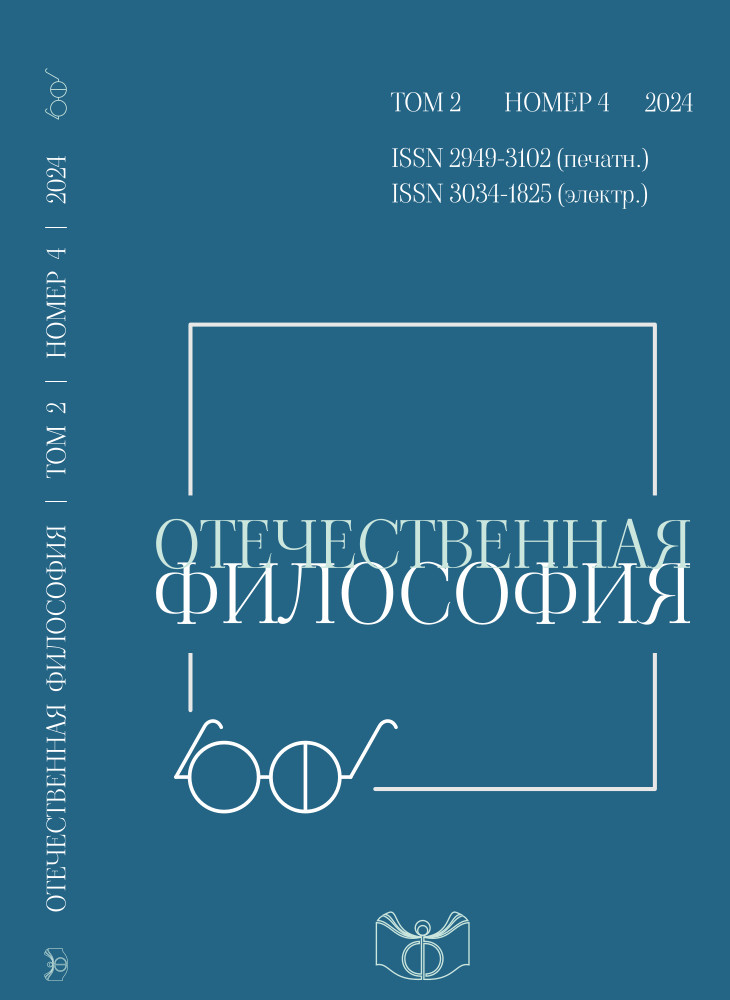V.S. Soloviev’s Philosophy of Mind, Descartes and the Impostor
Keywords:
Vladimir Soloviev, Descartes, philosophy of mind, substance, soul, organism, personal ontologyAbstract
The article is devoted to V.S. Soloviev’s arguments against the substantiality of the Self. In his late and unfinished work “Theoretical Philosophy” Soloviev presented a critique of Descartes’ argument in favor of understanding the Self as a substance. Soloviev believes that within the framework of the procedure of methodological doubt, we can assert that there are thoughts and thinking, but we cannot assert that there is a thinking substance. He gives two reasons for his statement. Firstly, we do not know what “being” is, except for the “being” for facts of consciousness, and the thinking substance is not a fact of our consciousness. Secondly, we do not know what “substance” is, although we know what “thinking” is. I criticize each of these reasons and show that Soloviev’s arguments are based on double standards. On the one hand, we may well doubt the existence of thoughts as such. On the other hand, we are fully aware of what being is and what substance is. I also offer an argument in favor of the fact that we have the right to move from thinking to thinking substance. My argument is based on the fact that the principle “property presupposes the existence of a property-bearer” stands up to methodological doubt and is self-evident. In conclusion, I argue that the thesis “I am a thinking substance” does not imply that thinking is an essential property for us and is compatible with different personal ontologies.


